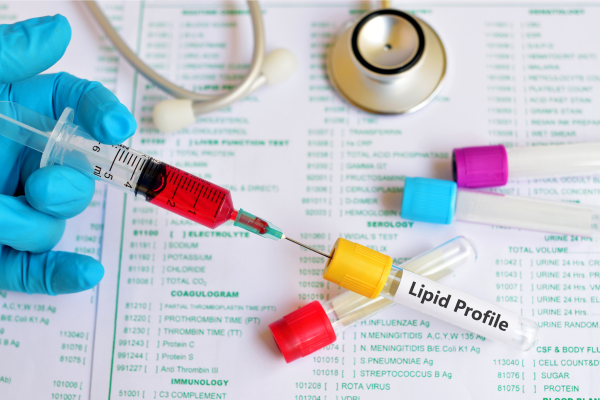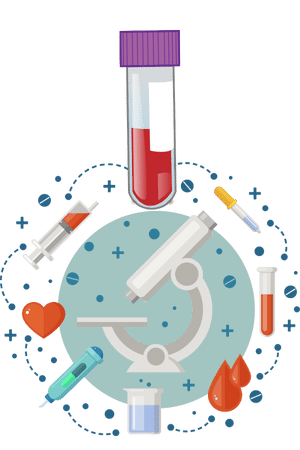
Lipid Profile Tests

About Lipid Profile Test
Lipid panel tests, also known as cholesterol tests, are diagnostic evaluations used to measure levels of different types of lipids (fats) in the blood. These tests provide valuable information about cholesterol levels, including low-density lipoprotein (LDL) cholesterol, high-density lipoprotein (HDL) cholesterol, total cholesterol, and triglycerides.
Types Of Lipid Profile Tests
Lipid panel tests provide valuable information about your cholesterol levels and overall cardiovascular health. If you have risk factors for heart disease, such as high blood pressure, diabetes, or a family history of heart disease, consult with a healthcare provider who may recommend lipid panel testing to assess your cholesterol levels and guide preventive or treatment measures.

Lipid Profile Tests
Measures the total amount of cholesterol in your blood, including both low-density lipoprotein (LDL) cholesterol (often called “bad” cholesterol) and high-density lipoprotein (HDL) cholesterol (“good” cholesterol). High total cholesterol levels may indicate an increased risk of heart disease.
Assesses the level of LDL cholesterol, which can build up in the arteries and contribute to plaque formation, increasing the risk of heart disease. Elevated LDL cholesterol levels are associated with a higher risk of heart attack and stroke.
Measures the level of HDL cholesterol, which helps remove LDL cholesterol from the bloodstream and transport it to the liver for processing and excretion. Higher levels of HDL cholesterol are associated with a reduced risk of heart disease.
Assesses the level of triglycerides, a type of fat found in the blood. Elevated triglyceride levels may indicate an increased risk of heart disease, especially when combined with other risk factors such as high LDL cholesterol and low HDL cholesterol.
Importance of Lipid Panel Tests
Cholesterol is a type of fat found in the blood and is essential for various bodily functions. However, high levels of certain types of cholesterol, particularly LDL cholesterol (“bad” cholesterol) and triglycerides, can increase the risk of heart disease and stroke. Lipid panel tests help healthcare providers assess cardiovascular health, identify risk factors for heart disease, and guide preventive measures and treatment decisions.
Benefits of Lipid Panel Tests
- Early detection of high cholesterol levels and cardiovascular risk factors.
- Assessment of cardiovascular health and risk of heart disease and stroke.
- Guidance for lifestyle modifications, such as diet and exercise, to improve cholesterol levels and reduce cardiovascular risk.
- Monitoring of treatment effectiveness in individuals receiving cholesterol-lowering medications.
Lipid Panel Tests
Lipid panel tests are essential for assessing cholesterol levels and evaluating cardiovascular health. If you have risk factors for heart disease, such as high blood pressure, diabetes, or a family history of heart disease, consult with a healthcare provider who can recommend lipid panel testing to assess your cholesterol levels and guide preventive measures and treatment decisions. Take control of your heart health with lipid panel tests.
Contact Us For More Detail

